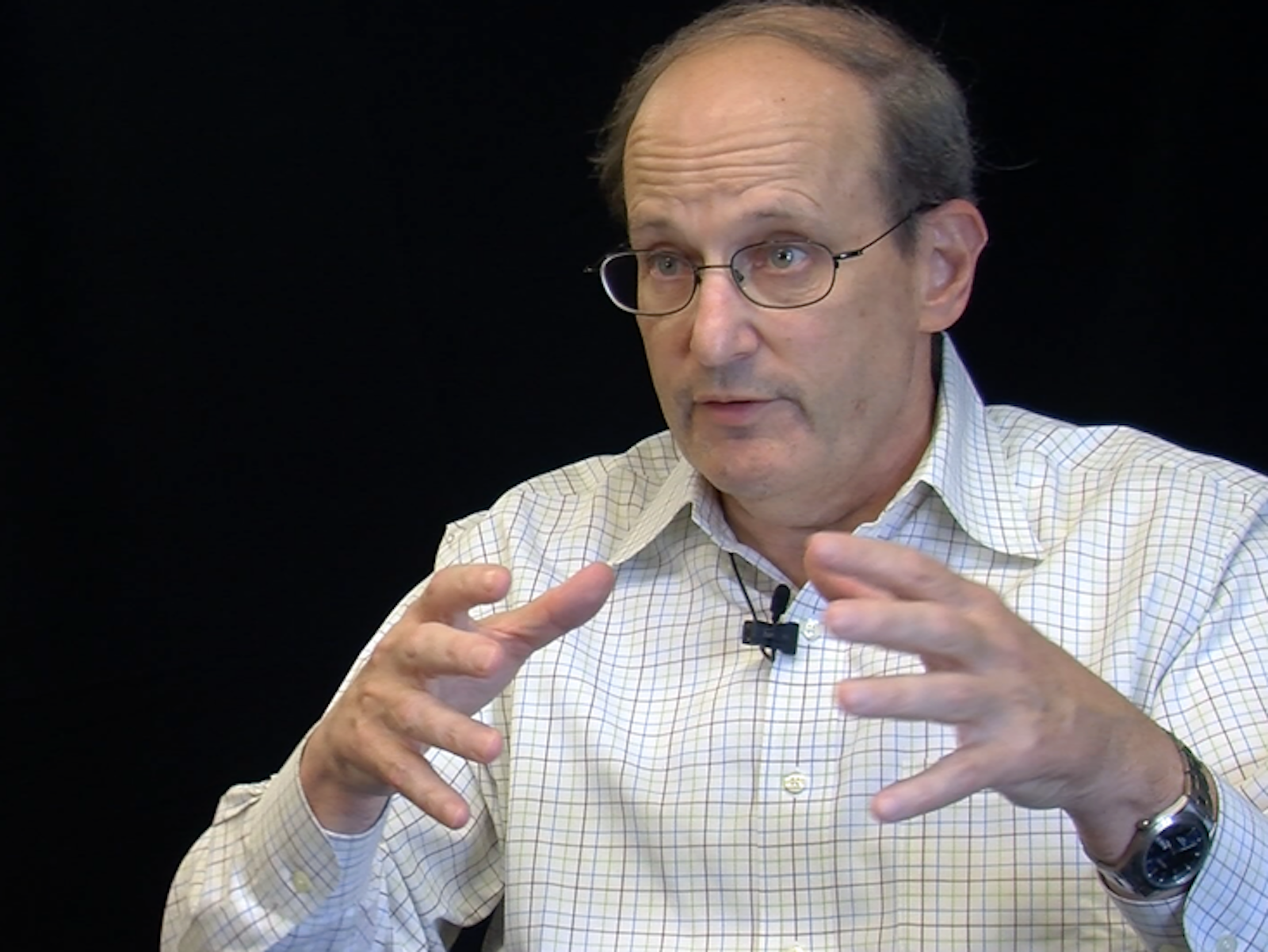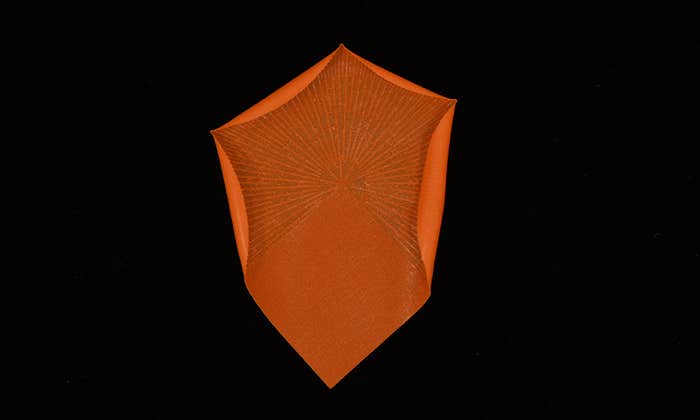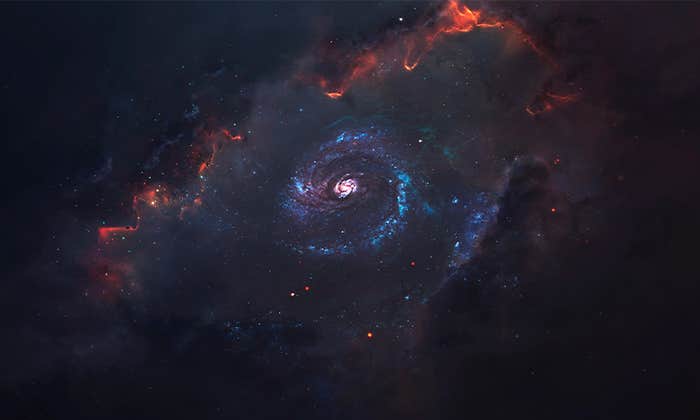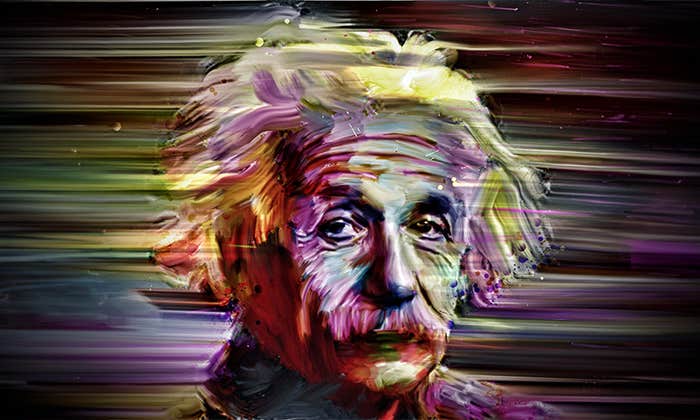Paul Steinhardt is torn. On the one hand, he has been working on and contributing to the theory of inflation for decades. On the other hand, he thinks it may very well be wrong.
Inflation describes the early universe going through an unimaginably rapid expansion in its infancy, from the size of an atomic nucleus to something like the size of the current observable universe, in an infinitesimal fraction of a second. When it was proposed, in 1980, it promised to account for the remarkable uniformity of our observable universe. No matter which direction of the night sky you look in, you see about the same density of stars and galaxies—in sharp distinction to the expected turbulent, patchy nature of the early, pre-inflation universe.
But after 35 years of study, Steinhardt and others have begun to argue that the theory is wrong. He sat down with Nautilus to explain why.
What is inflationary theory?
Imagine I’m sitting at a table across from you. If the space between us started to stretch at the same rate that it theoretically did in the early universe, it would be going too fast for the sound waves emanating from my mouth to reach you. You wouldn’t be able to hear me—or even see me, for that matter. Light couldn’t even keep up at the pace this space is stretching. That’s the kind of expansion we’re talking about when we’re talking about inflation. It began when the universe was about a billionth, billionth, billionth, billionth of a second old, and it doubled in size roughly every billionth, billionth, billionth, billionth of a second—for maybe a hundred thousand doublings, or a million doublings, or maybe a billion doublings. A region that was smaller than a nucleus blew up to a size that’s more vast than the small patch of universe we can observe today.
Why do you now think it’s flawed?
Because we’re trying to explain the universe in a simple, forcefully deterministic way. But instead, in this inflation universe, it looks like it’s an accident that we live in the universe that we do. We discovered that inflation is actually possible, but if it gets started, it would have to be eternal. It can end in some patches of the universe, but it will always continue in other patches of the universe. And where it continues, it blows up in volume so much that those patches are large enough to contain our universe. The problem is that quantum physics prevents all these patches from being the same. So every conceivable possible outcome of the universe can occur if you look from patch to patch to patch, and there’s no particular reason why ours is more likely than any other. So in a sense we would live in an accidental universe. That’s why all theories of inflation have to somehow explain why the inflation ends. What bothers me is that this always involves some degree of fine-tuning of the model. What we call parameters or coefficients or features in it have to be finely adjusted to get what you want; without them, the model is inconsistent with what we observe. So we don’t have a pretty theory, one that naturally explains this process.
It’s possible that what we think of as the “bang” that started everything was really just another bounce.
What’s wrong with a theory that predicts an accidental universe?
If you allow every conceivable possibility, then there’s no test or combination of tests that can disprove such a concept—which means it’s not even a scientific theory at all. Inflation began as an idea that seemed to have definite predictions and properties. But with the discovery of eternal inflation, and hence the multiverse, it moved to this accidental picture that’s incapable of being disproven. It’s so flexible, it could theoretically accommodate any observation. Such ideas lie outside the domain of the normal sciences that have been practiced for the last 400 years.
If we throw out inflation theory, what other explanations do we have?
It’s possible that what we think of as the “bang” that started everything was really just another bounce—a transition from a preexisting phase of contraction into one of rapid expansion. With that idea, there’s a whole new domain of time, before the bounce, before the bang, with which you can introduce processes that would naturally smooth and flatten the universe. The contraction would be very gentle and slow compared to the very rapid inflationary expansion, but it would still go at a non-uniform rate. This would translate into fluctuations of temperature and density after the bounce consistent with the fluctuations we see in the cosmic microwave background. This leads to a picture of a cyclical universe. Could there have been a series of bounces in the past? It’s a natural possibility. But I should say that with each bounce, there’s always going to be this smoothing, flattening process that ends up erasing information, or spreading out information so thinly from what preceded it, that there is almost no trace of it in the universe that you can directly find. The way you get around the problem of beginning is that there is no beginning. It was always there doing this, forever in the past and forever in the future.
Brian Gallagher is an editorial intern at Nautilus.


























